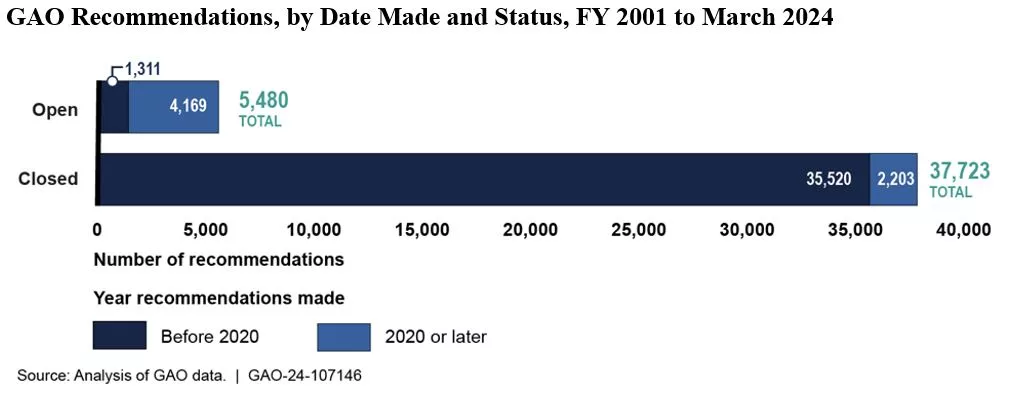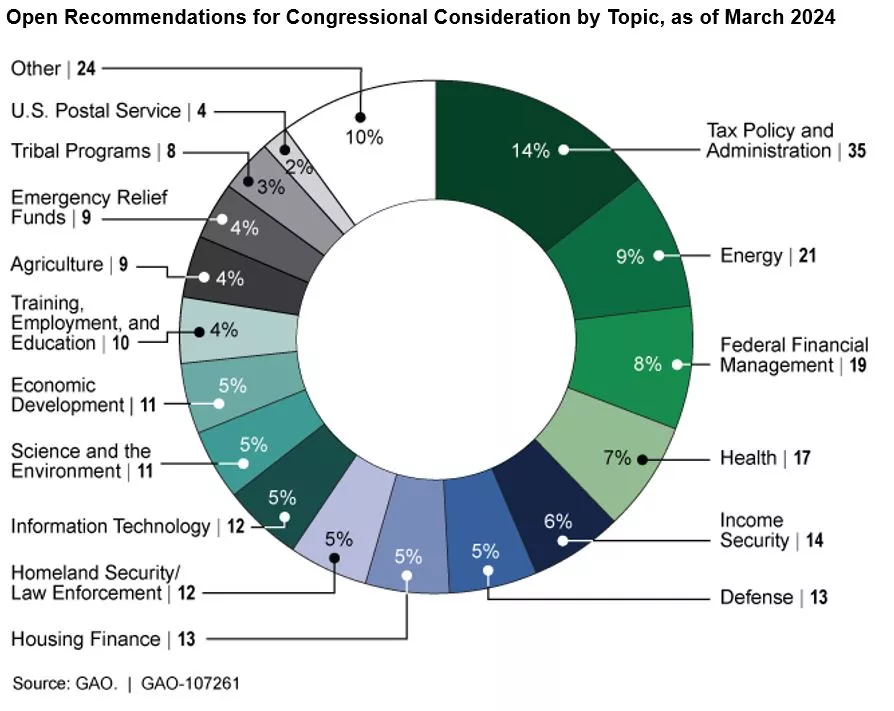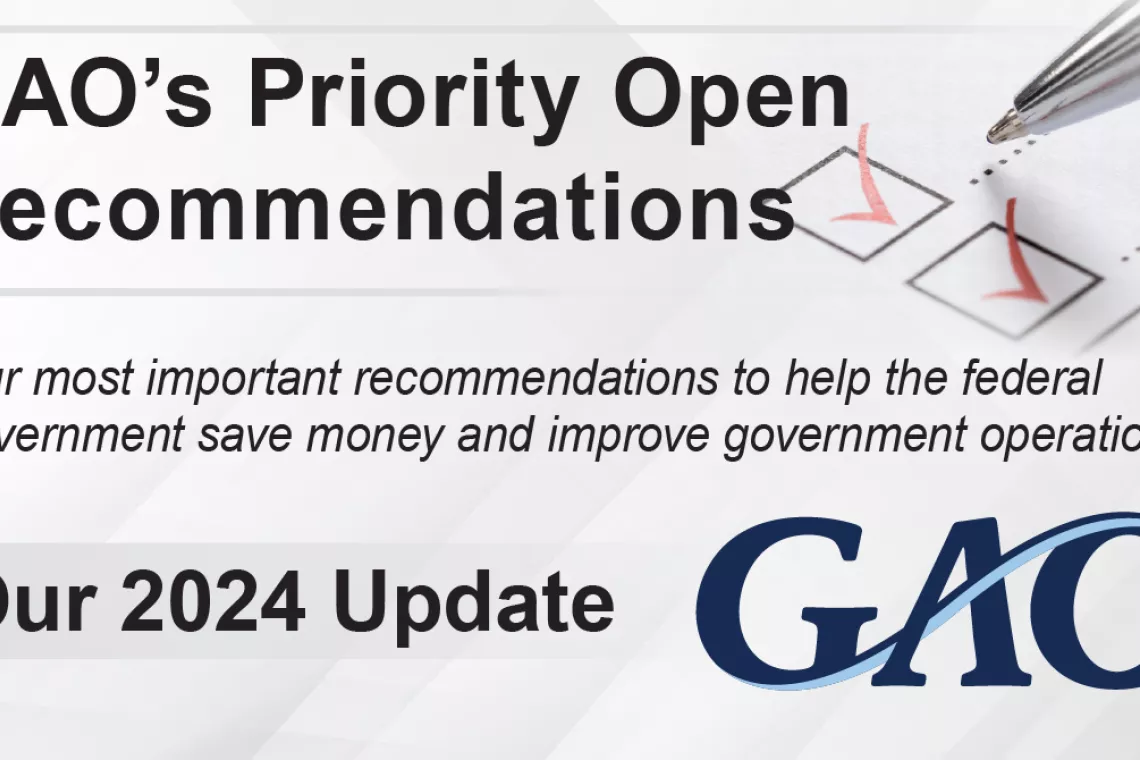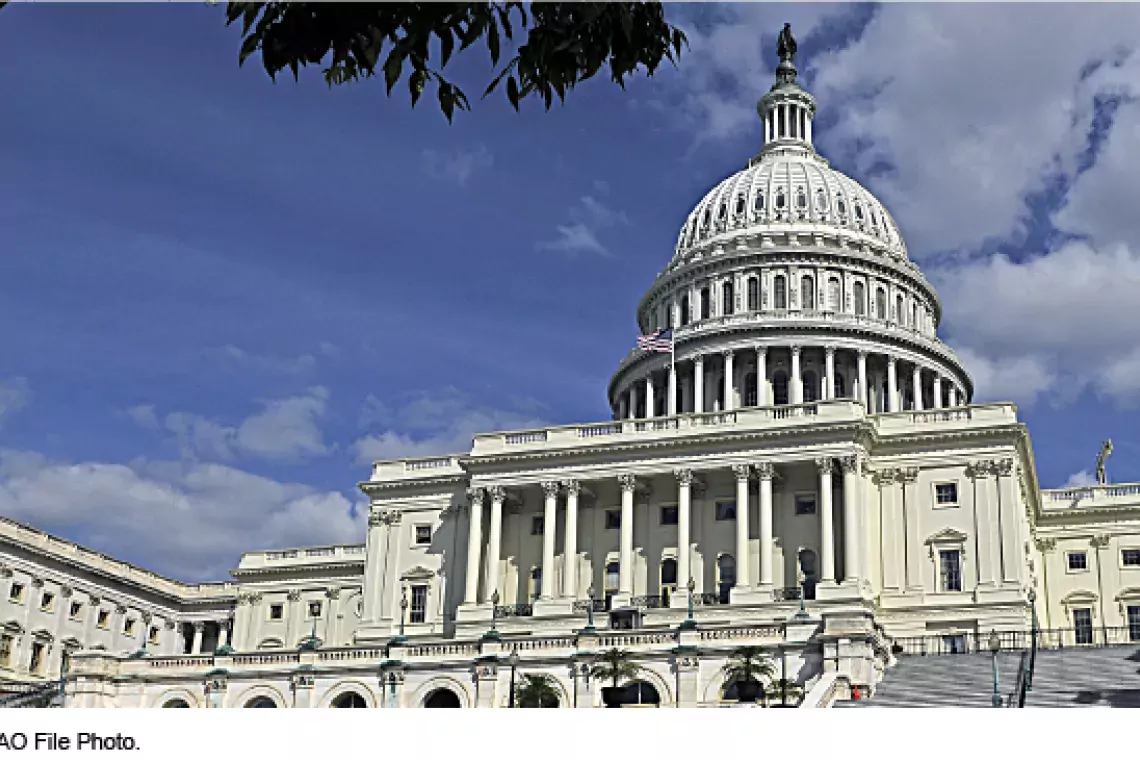How Can Government Work Better? Here Are Our Recommendations to do Just That While Saving Billions of Taxpayer Dollars
GAO’s role as a watchdog agency means we are always looking for ways to improve government programs and operations, and save taxpayers money. We make recommendations to federal agencies and sometimes to Congress on actions they can take to make government more effective and efficient.
Our new report lists 5,480 of these recommendations that still require action. If action is taken, we estimate that our recommendations have the potential to produce between $106 billion and $208 billion in measurable, future financial benefits.
Today’s WatchBlog post looks at some of these actions.
Image

When agencies and Congress take action, there are big benefits for the public
When agencies and Congress implement our recommendations, government costs are often reduced, funds are better used, or federal revenues increased. Since 2002, our work has resulted in over $1.38 trillion in financial benefits. In the last fiscal year alone (FY 2023) our work generated $70.4 billion.
Between 2001 and March 2024, we made 43,203 recommendations. Of these, 5,480 remain open—including 4,169 made in the last 4 years and 1,311 made more than 4 years ago.
Image

Beyond financial benefits, our recommendations have also produced over 28,000 program and operational benefits that have improved public safety and promoted sound management throughout government.
Some notable examples of our open recommendations to federal agencies and their potential financial and other impacts include:
- Student Loan Income-Driven Repayment Plans: The Department of Education should obtain data to verify income information for borrowers reporting zero income on Income-Driven Repayment applications. Taking this step could result in more than $2 billion in savings over 10 years, according to the Congressional Budget Office (CBO).
- Cybersecurity in Schools: The Department of Education, in coordination with federal and nonfederal stakeholders, should determine how best to help school districts address cyber threats. Taking action on this could help prevent cyberattacks on schools, which have resulted in monetary and learning losses.
- Business Process and Management: The Navy, Air Force, and Marine Corps should designate a single entity with sufficient authority and the resources necessary to support implementing predictive maintenance on weapon systems. This action could help the Department of Defense provide battle-ready ground combat systems, ships and submarines, and aircraft to its warfighters.
It Matters! Our recommendations for Congress
In addition to recommendations to federal agencies, our “matters for congressional consideration” (or just “matters”) could significantly improve government efficiency and effectiveness.
Since 2000, we have recommended that Congress consider more than 1,100 matters. Congress has acted on nearly 80% of them, with 242 remaining open. Many of these matters could be addressed by legislation Congress is considering. As of March, bills introduced in the 117th and 118th Congress would have fully or partially addressed 103 of the 242 open matters.
Image

Some notable examples of open matters for congressional action and their potential impacts include:
- Medicare Payments by Place of Service: Congress could consider directing the Secretary of Health and Human Services to equalize payment rates between physician offices and hospital outpatient departments. Then, the associated savings could be returned to the Medicare program. This could save billions for the program and Medicare beneficiaries. For example, CBO estimated that such actions could result in $141 billion in savings over 10 years.
- Public Safety Broadband Network: Congress should consider reauthorizing the First Responder Network Authority (FirstNet), which would ensure the continuity of the public-safety broadband network and allow collection of $15 billion in fee revenue over the next 15 years, according to our analysis of the FirstNet contract.
- Improper Payments and Fraud: Congress should establish a permanent analytic center of excellence to help auditors identify payment errors and fraud. We estimate that this action could prevent more than $1 billion in improper payments each year.
Learn more about our open recommendations for federal agencies and current open matters for congressional consideration by checking out our new report.
- GAO’s fact-based, nonpartisan information helps Congress and federal agencies improve government. The WatchBlog lets us contextualize GAO’s work a little more for the public. Check out more of our posts at GAO.gov/blog.
GAO Contacts
Related Products

GAO's mission is to provide Congress with fact-based, nonpartisan information that can help improve federal government performance and ensure accountability for the benefit of the American people. GAO launched its WatchBlog in January, 2014, as part of its continuing effort to reach its audiences—Congress and the American people—where they are currently looking for information.
The blog format allows GAO to provide a little more context about its work than it can offer on its other social media platforms. Posts will tie GAO work to current events and the news; show how GAO’s work is affecting agencies or legislation; highlight reports, testimonies, and issue areas where GAO does work; and provide information about GAO itself, among other things.
Please send any feedback on GAO's WatchBlog to blog@gao.gov.




